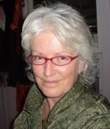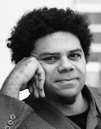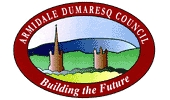| site search by freefind |
Youth Online Program 2011 (Archived)
A series of twelve (12) online interactive workshops—six (6) sessions each for primary and high school students.
Note that the last workshop consists of a double session. Please click on the workshop title for full details of each individual workshop, and on the tutor name for his/her biographical details.
Primary Schools
| Day | Date | Time | For | Tutor | No. | Workshop Title |
| Monday | 9 May | 10:00-10:45 am | Primary School | Lesley Sly | 1 | Getting Inside Your Creatures |
| Monday | 9 May | 11:00-11:45 am | Primary School | John Heffernan | 2 | Getting a Head for Tales |
| Wednesday | 18 May | 10:00-10:45 am | Primary School | Cecilia Dart-Thornton | 3 | Fantasy Creatures & Fabulous Beasts |
| Wednesday | 1 June | 10:00-10:45 am | Primary School | Sophie Masson | 4 | On the Edge of Your Seat |
| Tuesday | 28 June | 10:00-10:45 am | Primary School | Miles Merrill | 5 | Sounds Like - Hiss, Buzz, Splash |
| Tuesday | 9 August | 10:00-10:45 am | Primary School | Fiona McDonald | 6-a | Picture This (Session a) |
| 11:00-11:45 am | Primary School | Fiona McDonald | 6-b | Picture This (Session b) |
High Schools
| Day | Date | Time | For | Tutor | No. | Workshop Title |
| Tuesday | 31 May | 11:00-11:45 am | High School, Senior | Lesley Sly | 1 | Writing for Media |
| Wednesday | 1 June | 11:00-11:45 am | High School, Junior | Sophie Masson | 2 | On the Edge of Your Seat |
| Wednesday | 22 June | 10:00-10:45 am | High School, Junior | Michael Sharkey | 3 | List Poems |
| Wednesday | 22 June | 11:00-11:45 am | High School, Senior | Michael Sharkey | 4 | Drawing the Line in Poetry |
| Tuesday | 28 June | 11:00-11:45 am | High School, Junior | Miles Merrill | 5 | Stories, Lyrics and Monologues = SLAM |
| Tuesday | 2 August | 10:00-10:45 am | High School, Senior | Linda Jaivin | 6-a | Come to Your Senses (Session a) |
| 11:00-11:45 am | High School, Senior | Linda Jaivin | 6-b | Come to Your Senses (Session b) |
| Online Interactive Workshop No. 1 (Primary School) | ||
| Tutor | Lesley Sly | 
|
| Date | Monday, 9 May 2011 | |
| Time | 10:00 - 10:45 am | |
| Title | Getting Inside Your Creatures | |
| Description | A writer needs to get inside characters in their stories to make them convincing. In this workshop students will be making their characters up from the inside—it won’t involve writing, but it will involve words and sounds. | |
| Online Interactive Workshop No. 2 (Primary School) | ||
| Tutor | John Heffernan | 
|
| Date | Monday, 9 May 2011 | |
| Time | 11:00 - 11:45 am | |
| Title | Getting a Head for Tales | |
| Description | Heads For Tales is a book along with a CD John has written, a kind of creative writing manual, as well as a workshop. In the workshop John is encouraging students to see the world around them in terms of stories. Stories are everywhere, embedded in everything. As a writer, what you have to do is draw those stories out. Characters, description, suspense, action, humour are all part of turning what you see, think and feel into a tale so that others can see, think and feel with you. | |
| Online Interactive Workshop No. 3 (Primary School) | ||
| Tutor | Cecilia Dart-Thornton | 
|
| Date | Wednesday, 18 May 2011 | |
| Time | 10:00 - 10:45 am | |
| Title | Fantasy Creatures & Fabulous Beasts | |
| Description | Unicorns, dragons, griffins and some new ones invented by YOU. Release the amazing animals from your imagination and bring them to life through your writing. If teachers want to do a little research on mythical beasts before the workshop, some are listed here: | |
| Online Interactive Workshop No. 4 (Primary School) | ||
| Tutor | Sophie Masson | 
|
| Date | Wednesday, 1 June 2011 | |
| Time | 10:00 - 10:45 am | |
| Title | On the Edge of Your Seat | |
| Description | What makes a story something people want to read? In Sophie’s view: It is suspense—the gripping feeling that you're not sure what's going to happen next and you're desperate to know! It's not just mystery stories or thrillers that benefit from suspense—any kind of story, from fantasy to drama, humour to horror, depends on good suspense. But how to go about creating and building suspense so a story isn't just, 'And then this happened', and 'then that happened'? Here's a fun workshop to explore suspense and help you create exciting stories. | |
| Online Interactive Workshop No. 5 (Primary School) | ||
| Tutor | Miles Merrill | 
|
| Date | Tuesday, 28 June 2011 | |
| Time | 10:00 - 10:45 am | |
| Title | Sounds Like – Hiss, Buzz, Splash | |
| Description | Exploring onomatopoeia—words that imitate a sound or action. Miles Merrill gets kids thinking about what words sound like. He talks about the rhythm and rhyme of poetry, how speaking a poem out loud brings the meaning to life, and what happens to poetry when you add music. What does the film industry term “foley” mean? How would you spell the sound of a soft haunting wind blowing through branches after a storm or really capture the sound of a pigeon cooing? Students will be challenged to make up new words and discover that for some sounds there are no words. | |
| Online Interactive Workshop No. 6 (Primary School) | ||
| Tutor | Fiona McDonald | 
|
| Date | Tuesday, 9 August 2011 | |
| Time | Double session starting at 10:00-10:45 am, then continuing from 11:00-11:45 am
The tutor will set students something to do in the 15-minute break. |
|
| Title | Picture This | |
| Description | One of the major problems of illustrating a story is deciding which part to illustrate. It can be so difficult deciding what to draw that in the end nothing gets drawn—and that is what we don’t want to happen because picture books would be really boring without the pictures!
In this workshop we will take our pens on a journey based on popular fairy tales. We’ll start at the top left corner of the board and we’ll draw scenes from Little Red Riding Hood. Let’s start at the beginning when she leaves her house, basket over her arm, red cloak flapping in the wind and skipping down the path that will lead into the dark woods. As I narrate, and invite students to narrate along with me, I will start drawing what I have just described. Then I will ask students to begin to add details of their own: trees, goblins hiding behind the trees, flowers and then ... The Big Bad Wolf . I think everybody should draw their own wolf. There will be my drawing on the board with students either adding to it or doing their own version, electronically or on paper and the story being told as we go along. At certain points I will invite students to begin a new episode of Little Red Riding Hood (such as she meets a band of robbers or she comes to a cliff) or to begin another classic adventure. I wouldn’t be surprised at meeting any number of fairytale characters in this wood. The aim of the workshop is to loosen up inhibitions about drawing. It also aims to demonstrate that there is more than one point of perspective for illustrating and that we are not limited to a realistic scene with the ground at the bottom and sky at the top. This is designed to be an entertaining activity for school students of any age and ability. We will have a combination of students being selected to contribute to my drawing while the rest are engaged in the activity in the classroom on a whiteboard or on a large sheet of paper (groups of four or five could work on a sheet of butcher’s paper at a table. There is no preparation needed by the teachers for this workshop except to supply paper and pens (not pencils but black felt-tip pens if possible) and to come along and enjoy the show. It would be great if each school could print up their finished product and perhaps colour it. |
|
| Online Interactive Workshop No. 1 (High School, Senior) | ||
| Tutor | Lesley Sly | 
|
| Date | Tuesday, 31 May 2011 | |
| Time | 11:00 - 11:45 am | |
| Title | Writing for Media | |
| Description | This workshop will pack into 45 minutes an overview of what it takes to write for media as a freelance journalist. How to start and develop a career that can be portable (write your way around the world) and adaptable (turn knowledge you gather about things that interest you into profit by writing about it) and can take you to interesting places and connect you with people who do interesting things. | |
| Online Interactive Workshop No. 2 (High School, Junior) | ||
| Tutor | Sophie Masson | 
|
| Date | Wednesday, 1 June 2011 | |
| Time | 11:00 - 11:45 am | |
| Title | On the Edge of Your Seat | |
| Description | What makes a story something people want to read? In Sophie’s view: It is suspense—the gripping feeling that you're not sure what's going to happen next and you're desperate to know! It's not just mystery stories or thrillers that benefit from suspense—any kind of story, from fantasy to drama, humour to horror, depend on good suspense. But how to go about creating and building suspense so a story isn't just, 'And then this happened', and 'then that happened'? Here's a fun workshop to explore suspense and help you create exciting stories. | |
| Online Interactive Workshop No. 3 (High School, Junior) | ||
| Tutor | Michael Sharkey | 
|
| Date | Wednesday, 22 June 2011 | |
| Time | 10:00 - 10:45 am | |
| Title | List Poems | |
| Description | Many poems are built around the idea of a list or catalogue of things (places, people, foods, ideas and emotions, fields of study, events). Sometimes the lists are very obvious (for example, certain poems by Walt Whitman, Les Murray, Pablo Neruda or Rosemary Dobson). Sometimes the lists are subtle (for example in a poem by John Keats about Autumn and its effects). List poems often contain repetitive expressions, and sometimes they rhyme. We’ll see what sorts of ‘list’ poems people know already, and we’ll see how they manage to say something interesting about the list or the things in it. List poems don’t just have any sort of listing pattern; they have things arranged for rhythmic effect, so they sound smooth (or sometimes deliberately jarring). They’re generally well thought out, so the first things that come to mind aren’t necessarily left in the same order in the final poem. The workshop aim is to collaboratively create one or more list poems, drawing on familiar things—foods, everyday objects, interesting attributes or skills of friends, ways to do everyday things (like getting to know someone, preparing to go for a trip or a holiday). We’ll work on suggestions, using the whiteboard to record items and then we’ll experiment with rearranging items and lines for fresh effects, and see if we can bring a poem to an interesting conclusion. Sometimes a poem will ‘take off’ in an interesting direction along the way while we’re listing things—and we can discuss the best lines to end on as we look over the whole list.
Preparation: Think of some list poems you already know—poems on the syllabus, poems you like, poems you’ve made up. If you can’t think of any, check out some of these:
Taken by Surprise *Visitors, dazzling in the doorway, fly in fromSantiago, Dublin. They make long-distance telephone calls. Need extra Blankets, ash-trays. Get up later or earlier. Are unpredictable. Appear suddenly in the kitchen. Come and go in taxis. Bring presents. Send me Back to my childhood— Touching the fur on coats hanging in wardrobes, opening Strange jars of cosmetics, Sniffing the other countries; stockstill with surprise, as at Mown grass and rainfall, And the sudden sharp scent of the land at the end of Days of long voyaging. * from: Rosemary Dobson. The Three Fates and Other Poems. Sydney: Hale & Iremonger, 1984. p. 22 |
|
| Online Interactive Workshop No. 4 (High School, Senior) | ||
| Tutor | Michael Sharkey | 
|
| Date | Wednesday, 22 June 2011 | |
| Time | 11:00 - 11:45 am | |
| Title | Drawing the Line in Poetry | |
| Description | This workshop will focus on the idea of the line as the fundamental element in poetry. Prose is organised in sentences, paragraphs and larger chunks of information that convey a sense of continuity of thought. In almost every culture throughout history, poetry has been organised in verses that arrange information in segments that highlight the organisation of material by adding weight to every unit of sense.
In this workshop, we’ll collaborate on a poem that will demonstrate this principle. We’ll briefly discuss poems that student writers are familiar with—a sort of brainstorm session that identifies what happens in a line and why lines ‘break’ where they do. The line also serves as a unit of punctuation: sometimes the end of a line is marked with a comma, full stop or other formal mark; at other times, it seems to end arbitrarily. We’ll discuss this. We’ll move on to create a poem out of ordinary experience—say, drawing on early memories of unusual events or dreams, and we’ll select from these to create a narrative poem by organising the components in lines. We won’t try to cram the lines into some sort of rhyming or stanza pattern, but we’ll think about where the lines should actually ‘break’ to add tension. Preparation: Look at some poems you’re familiar with and think about how the lines are arranged. Do they rhyme? Are they all the same length? Why do you think they end where they do? How do you read the poem—as lines or as a continuous flow? Some poems that display different ideas of lines and punctuation:
|
|
| Online Interactive Workshop No. 5 (High School, Junior) | ||
| Tutor | Miles Merrill | 
|
| Date | Tuesday, 28 June 2011 | |
| Time | 11:00 - 11:45 am | |
| Title | Stories, Lyrics and Monologues = SLAM | |
| Description | What is a poetry SLAM? Drawing on his Chicago roots, Miles Merrill talks about how performance poetry sparked a national competition in the US, Australia and the world. This wordshop challenges students to come up with unique ways that we can use creative writing and performance for social, political and personal change. We’ll look at theatre, creative speech-making, stand-up comedy, debates, song lyrics, traditional story-telling and, of course, poetry. | |
| Online Interactive Workshop No. 6 (High School, Senior) | ||
| Tutor | Linda Jaivin | 
|
| Date | Tuesday, 2 August 2011 | |
| Time | Double session starting at 10:00-10:45 am, then continuing from 11:00-11:45 am
The tutor will set students something to do in the 15-minute break. |
|
| Title | Come to Your Senses | |
| Description | Sensual writing is evocative writing. It draws on and appeals to all our senses and deepens a story into an entire world, in which there is not just character and action but smells—of sun-warmed skin, for example, or freshly mowed lawn—and sounds, colour, taste and texture. This workshop will give you the tools for sharper observation and more accurate, striking description. Writing from the senses is not only important for fiction, but poetry, essays, travel-writing and other sorts of journalism as well. This workshop will teach you how to write with your eyes, ears, skin, nose and tongue. But do bring a pen and paper. | |
The New England Writers' Centre is assisted by the NSW Government through Arts NSW.
 |

|
||

|

|

|
 |